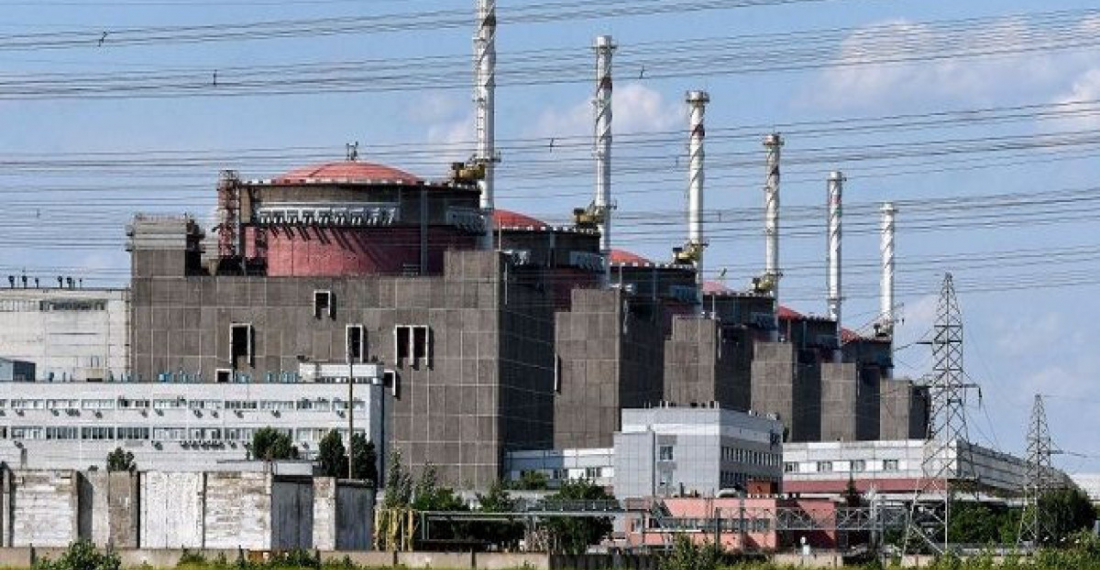EU member states and other countries in the international community have issued a statement on the situation around the Zaporizhzhia Nuclear Power Plant, and have called on Russia to withdraw its troops from the territory of the plant. In a statement, the 42 countries called on Russia
to immediately withdraw its military forces and all other unauthorised personnel from the Zaporizhzhia Nuclear Power Plant, its immediate surroundings, and all of Ukraine so that the operator and the Ukrainian authorities can resume their sovereign responsibilities within Ukraine’s internationally recognized borders and the legitimate operating staff can conduct their duties without outside interference, threat, or unacceptably harsh working conditions. This will also enable the IAEA to carry out its verification pursuant to Ukraine’s safeguards obligations under safe and secure conditions and in a timely manner.
This statement was issued on behalf of Australia, Austria, Belgium, Bulgaria, Canada, Croatia, Cyprus, Czech Republic, Denmark, Estonia, Finland, France, Georgia, Germany, Greece, Hungary, Iceland, Ireland, Italy, Japan, Latvia, Liechtenstein, Lithuania, Luxembourg, Malta, Montenegro, Netherlands, New Zealand, North Macedonia, Norway, Poland, Portugal, Republic of Korea, Republic of Moldova, Romania, Slovakia, Slovenia, Spain, Sweden, Türkiye, United Kingdom of Great Britain and Northern Ireland, United States of America, as well as the European Union.
The full statement said:
The Russian Federation’s unprovoked and unjustified war of aggression against Ukraine, a sovereign country, is a gross violation of international law, including the UN Charter.
We strongly endorse the importance of the fundamental Seven Pillars of Nuclear Safety and Security as outlined by IAEA Director General Grossi. Russia’s control of the Zaporizhzhia Nuclear Power Plant - Europe’s largest nuclear power plant - poses a great danger to these principles. Deployment of Russian military personnel and weaponry at the nuclear facility is unacceptable and disregards the safety, security, and safeguards principles that all members of the IAEA have committed to respect.
The presence of Russian military forces at the Zaporizhzhia Nuclear Power Plant prevents the operator and the Ukrainian authorities from fulfilling their nuclear and radiation safety obligations in accordance with international conventions and IAEA safety standards, and prevents the IAEA from fulfilling its safeguards mandate.
We urge the Russian Federation to immediately withdraw its military forces and all other unauthorised personnel from the Zaporizhzhia Nuclear Power Plant, its immediate surroundings, and all of Ukraine so that the operator and the Ukrainian authorities can resume their sovereign responsibilities within Ukraine’s internationally recognized borders and the legitimate operating staff can conduct their duties without outside interference, threat, or unacceptably harsh working conditions. This will also enable the IAEA to carry out its verification pursuant to Ukraine’s safeguards obligations under safe and secure conditions and in a timely manner.
We fully support the work of the IAEA and its Director General to assist Ukraine in the areas of nuclear safety, security, and safeguards implementation during Russia‘s ongoing war of aggression against Ukraine, while respecting full Ukrainian sovereignty over its territory and infrastructure.
As it was already expressed in the Board of Governors Resolution GOV/2022/17, it is undeniable that Russia’s invasion and its continued presence at Ukraine’s nuclear facilities significantly raise the risk of nuclear incidents and accidents.
We strongly condemn Russia’s use of disinformation to try to justify its illegal actions in Ukraine.
The international community will hold Russia accountable for its aggression, and Russia must bear full responsibility for its unlawful actions in Ukraine.






